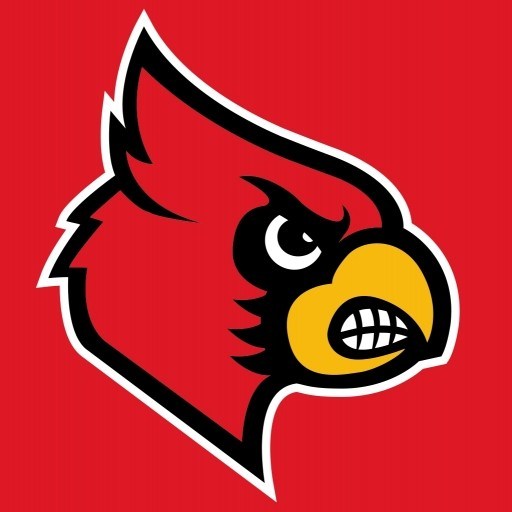Photos of university / #universityoflouisville
Special Education (Assistive Technology) at the University of Louisville prepares graduate students to become innovative educators and assistive technology specialists dedicated to supporting learners with diverse needs. This comprehensive program combines in-depth coursework, practical experiences, and research opportunities to equip students with the skills necessary to enhance learning outcomes through the effective use of assistive technologies. Students will explore a wide range of tools and strategies designed to promote accessibility, independence, and participation for individuals with disabilities across various educational settings.
The program emphasizes a learner-centered approach, integrating theoretical foundations with hands-on training in the assessment, selection, and implementation of assistive devices and software. Students will gain expertise in conducting assistive technology evaluations, customizing solutions to meet individual needs, and collaborating with educators, clinicians, and families to develop effective support plans. Throughout their studies, candidates will engage in projects that foster critical thinking, problem-solving, and innovative application of technology in real-world contexts.
Designed for current educators, rehabilitation professionals, and individuals interested in specialization within special education, the program provides flexibility through part-time and online coursework options. Coursework includes topics such as foundations of special education, assistive technology assessment and intervention, legal and ethical considerations, and research methods in special education. Students also have opportunities for practicum placements and internships, enabling them to apply their knowledge in diverse settings, including K-12 schools, healthcare facilities, and community programs.
Graduates of the program will be well-prepared for roles such as assistive technology specialists, special education teachers, consultants, and advocates for people with disabilities. They will possess the competencies to enhance educational and life success for individuals with disabilities by leveraging current and emerging assistive technologies. Committed to fostering inclusive and equitable learning environments, the program aims to develop leaders who can influence policy, promote effective practices, and contribute to advancing the field of assistive technology within special education.
Overall, the Special Education (Assistive Technology) program at the University of Louisville offers an intensive, research-informed, and practically oriented education that supports the development of highly skilled professionals dedicated to transforming lives through technology and innovative educational practices.
The Special Education (Assistive Technology) program at the University of Louisville is designed to prepare educators and specialists to effectively integrate assistive technology into the educational process for students with diverse learning needs. This comprehensive program emphasizes the development of skills necessary to assess, select, and implement a wide range of technological tools that support learning, communication, and independence for individuals with disabilities. Throughout the program, students will explore the theoretical foundations of assistive technology, as well as hands-on application in real educational settings. Core coursework includes topics such as assistive technology assessment, customizing technology solutions, legal and ethical considerations, and collaboration with families and other professionals. Students will also have opportunities for practicum experiences, where they can work directly with students and educators to develop and implement assistive technology plans. The curriculum is designed to ensure that graduates are equipped with the knowledge and skills to promote inclusive education and improve access to learning for all students. Graduates of this program are prepared to serve in roles such as assistive technology specialists, special education teachers, and consultants, working in schools, clinics, or community agencies. The program combines theoretical study with practical application, engaging students in project-based learning, seminars, and fieldwork to foster a deep understanding of current assistive technology innovations and best practices. With a faculty of experienced educators and specialists in the field, the University of Louisville provides a stimulating environment for students to grow professionally and contribute meaningfully to the future of inclusive education through the use of assistive technology.
The Special Education (Assistive Technology) graduate program at the University of Louisville requires applicants to possess a bachelor’s degree from an accredited institution. Prospective students must submit official academic transcripts demonstrating their undergraduate coursework and GPA, along with relevant standardized test scores such as the GRE, although specific score requirements may vary. A completed application form, along with a fee, must be submitted through the university’s online application portal. Applicants are also expected to provide letters of recommendation, typically two to three, which attest to their academic ability and potential for success in graduate studies. Statements of purpose or personal essays are required, where applicants should articulate their interest in assistive technology within special education and their career goals. Relevant professional experience or prior coursework in special education, rehabilitation, or related fields can strengthen an application, though they may not be mandatory. International applicants must demonstrate English language proficiency through TOEFL or IELTS scores falling within the university’s accepted ranges. The program may have specific prerequisite coursework, such as introductory special education or assistive technology courses, to ensure students are prepared for advanced study. Once admitted, students are required to complete a set number of credit hours, generally around 30-36, including core courses in assistive technology, special education laws, instructional strategies, and research methods. Practical experience through internships or practica is also a component of the curriculum, enabling students to apply technological solutions in real-world settings. All students must maintain satisfactory academic progress and adhere to the university’s policies regarding conduct and program requirements to remain enrolled. Graduates of the program are prepared for careers as assistive technology specialists, special education teachers, or consultants working with individuals with disabilities, as well as for further graduate study or certification opportunities.
The University of Louisville offers various financial aid opportunities to support students enrolled in the Special Education (Assistive Technology) program. Prospective students are encouraged to explore federal, state, institutional, and private funding sources to finance their studies. Federal financial aid programs, such as the Free Application for Federal Student Aid (FAFSA), are available to eligible students, providing grants, loans, and work-study options to reduce the financial burden of graduate education. The university participates in the William D. Ford Federal Direct Loan Program, allowing students to access low-interest loans with flexible repayment plans. Additionally, students can apply for federal and state grants, which do not require repayment, based on financial need and academic progress.
The University of Louisville also offers institutional scholarships specifically for graduate students pursuing degrees in education and related fields. These scholarships are merit-based or need-based and can significantly offset tuition costs. Students are advised to contact the Office of Financial Aid and Scholarships for detailed eligibility criteria and application procedures. Moreover, assistantship opportunities such as graduate teaching assistantships, research assistantships, and administrative assistant positions are available for qualified students. These positions often include tuition waivers and stipends, providing both financial support and professional experience.
In addition to internal funding, students are encouraged to seek external scholarships and fellowships offered by professional organizations, educational foundations, and community agencies related to special education and assistive technology. Many organizations promote diversity and inclusion and provide funding to support the education and development of future educators specializing in assistive technology.
Student loan options at the university include federal Direct Stafford Loans, which are available to eligible students based on financial need, and unsubsidized loans for those without need-based restrictions. Loan repayment programs typically begin after graduation, with flexible plans available to accommodate varying employment situations. Students are also advised to explore employer reimbursement programs if they are currently employed in related fields.
The university maintains a comprehensive online portal for financial aid information, including resources, deadlines, and detailed instructions for application processes. Financial literacy workshops and counseling sessions are also available to help students understand borrowing responsibilities and plan their finances effectively throughout their studies. In conclusion, a combination of federal, state, institutional, and external funding sources provides robust financial support options for students enrolled in the Special Education (Assistive Technology) program at the University of Louisville, making advanced degrees accessible and affordable for dedicated individuals committed to advancing the field of assistive technology in education.
The University of Louisville offers a specialized program in Special Education with a focus on Assistive Technology, designed to prepare educators, specialists, and professionals to effectively support students with disabilities. This program emphasizes the integration of assistive technologies into educational practices to enhance learning outcomes and promote independence for learners with diverse needs. Students engage in coursework that covers a broad spectrum of topics, including advanced instructional strategies, assessments, legal and ethical considerations, and the latest innovations in assistive devices and software. The curriculum is structured to provide practical experience through fieldwork, internships, and collaborative projects with local educational agencies and organizations dedicated to special education.
Candidates in this program develop competencies in evaluating assistive technology tools, customizing them to meet individual student requirements, and implementing them within various educational settings. The program also emphasizes interdisciplinary collaboration, encouraging students to work alongside speech therapists, occupational therapists, and other specialists to create comprehensive support plans. Faculty members are experienced professionals with expertise in special education, assistive technology development, and inclusive practices, offering a rich learning environment that bridges theory and real-world application.
Graduates of the program are equipped to serve as assistive technology specialists, interventionists, or educators in inclusive classrooms, resource rooms, and specialized programs. They are prepared to advocate for accessible education policies and to contribute to ongoing research in assistive technologies that improve educational access and equity. The University of Louisville’s commitment to inclusivity and educational excellence ensures that students receive a comprehensive education grounded in current best practices and emerging innovations in special education technology.
This program also offers opportunities for professional development and certification, aligning with state and national standards for educators and specialists working within the field of assistive technology. By completing this program, graduates join a community of professionals dedicated to transforming educational experiences and fostering positive, meaningful outcomes for students with disabilities. The university’s strong connections with local and national educational entities provide graduates with pathways for employment, continued education, and leadership roles in advancing inclusive education practices nationwide.









